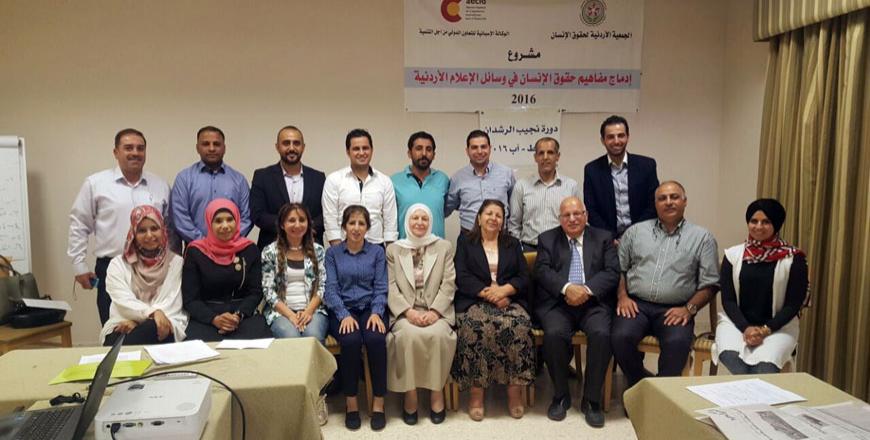You are here
Conference participants discuss dangers of hate speech in education, social media
By Suzanna Goussous - Oct 19,2015 - Last updated at Oct 19,2015

Media and education experts attend a conference on combating hate speech and extremism in print and online outlets at Al Rai Centre for Studies in Amman on Monday (Photo by Khaled Oudat)
AMMAN — An average of six instances of hate speech are published daily in Arab print outlets, researcher Fatima Aqarbeh said at a conference on Monday on combating hate speech and extremism in print and online outlets.
The conference, organised by Al Rai Centre for Strategic Studies and “iDare for sustainable development”, was attended by academics, politicians and journalists who discussed ways to fight the spread of “hate speech”.
“iDare” is a nonprofit Jordanian social enterprise that launched the “#idare_to_love_speech” initiative to encourage young people to engage in positive and constructive online dialogue.
The print media outlets of countries that witnessed revolutions over the past five years featured 3,086 words that promoted extremism and hatred, Aqarbeh said, citing recent studies.
She noted that countries with the widest spread of hate speech were the first to witness revolutions during what was referred to as “the Arab Spring” starting in December 2010.
Former education minister Mohammad Wahsh said at the meeting that school curricula are not the reason why young Jordanians are unaware of the importance of fighting online hate speech and forms of extremism.
“The problem we face in Jordan is... caused by some of those who teach young Jordanians and ultimately use education for political goals,” he said.
Participants stressed the importance of language use when disseminating news and the way the absence of the right terms might mislead the reader or the viewer, as the term “terrorism” adapts to the identity of the speaker.
Wahsh said that whoever promotes hatred and radicalism should be held legally accountable to curb the use of hate speech targeting certain religions or ethnicities.
For his part, Ro’ya TV channel host Fuad Karsheh said there is no such thing as “direct” hate speech broadcast on televisions and radios.
“Hate speech and extremism exist in all areas of society; there is a ‘soft’ start in school curricula to indirectly promote ideas to a student that would later develop into hatred of the ‘other’,” Karsheh continued.
Participants discussed the drawbacks of using social media to comment on happenings, referring to the attack on Ro’ya TV channel in September as an example.
“The hate speech levelled on Ro’ya was planned for a specific period of time — which then became a war on a [certain group of people]; it uncovered some morals we, as Jordanians, have to question,” Karsheh said.
Researcher Hamdi Murad said Jordanians of different religions have been coexisting for 14 centuries.
Therefore, most of the attendees agreed on “criminalising” any published speech that encourages discrimination and hatred between people of the same society.
Related Articles
AMMAN — Media outlets bear a major responsibility in spreading awareness on the consequences of online hate speech as well as presenting a m
AMMAN — Twelve journalists from broadcast, print, radio and online media completed human rights training in Salt on Tuesday at the Jordan So
AMMAN — Nisaa Broadcasting Corporation and the Womanity Foundation on Tuesday launched Nisaa Network in Amman.Nisaa Network’s new website is













